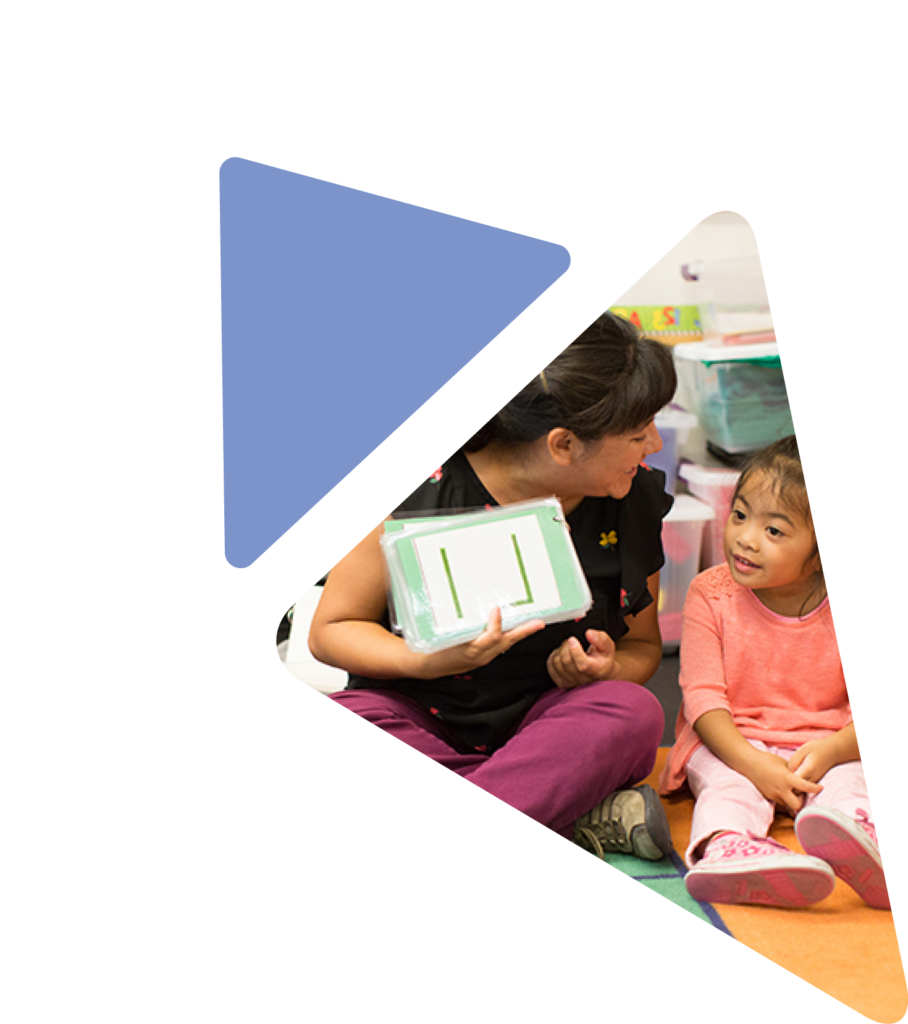Policy Agenda
The Department of Early Childhood (DEC) partners with our community to weave together family and a system of support that ensures all children who grow up in San Francisco thrive and learn. To achieve our goals, DEC promotes policies and engages with institutions that care for and enhance children’s health, knowledge, and well-being at the local, state, and federal levels. As with DEC’s strategic plan, our policy agenda is rooted in our partnership with parents, early educators, and the field of early childhood, always focused on amplifying parents’ voices. DEC is diligent in creating opportunities by addressing the inequities in early childhood and strives to support families, so race is not a reliable predictor of outcomes for young children and their families in San Francisco. DEC promotes policy reform as an authentic means for power-sharing for the public good.

Our policy agenda presents current and emerging policy issues in early childhood that reflect DEC’s three core strategies:

Increases access to affordable and quality early childhood education (ECE), child health and development, and family support services to meet the needs of San Francisco’s birth-to-five children and their families.

Commits to developing and promoting policies and best practices that disrupt racially inequitable early childhood programming and eliminate disparate outcomes for all young children and their families, inclusive of Black, Latino, Indigenous, and Pacific Islander communities to address the over-representation of disparities that persist across early childhood development outcomes within these populations.

Families have the information, resources, and connections to peers and professionals to raise their children in San Francisco successfully.
As such, DEC’s policy agenda is organized into five core strategies to advance opportunities in support of teacher preparation and compensation, enhance program quality, and improve affordability and access; ensure universal developmental screening and promote access to health and mental health services for children and their families; and ensure that families have opportunities for social and professional connections, linkage to resources, and information on parenting and child development.
I. Early Learning
Build a system that improves equitable access to high-quality, affordable early care and education for all children from birth to five years of age so that they have the best start in life and enter kindergarten ready to succeed.
Read More About Policy Area I.
- Develop and support mechanisms to achieve continuous eligibility for families and continuity of care for children ages birth to five, focusing on populations with exceptional needs and disparities in resources.
- Using a racial equity framework, ensure school readiness experiences include high-quality early care and education for all children birth to five years of age, focusing on increasing investments for infants and toddlers.
- Ensure that quality and assessment systems are responsive to the diverse needs of ECE programs and the children they serve.
- Support culturally responsive and linguistically appropriate environments across a mixed delivery system that views and supports each child holistically.
- Support policies and strategies that enhance coherence and alignment for Universal PreK (UPK) through a mixed delivery system that includes public school districts, community-based early education centers, and Family Child Care programs.
- Amplify parent/family voice, engagement, and influence in shaping policy and programs.


II. Systems & Infrastructure
Create a well-funded, coordinated, data-driven ECE system that leverages and maximizes services to families, children, and the ECE workforce, including health, community, and economic development, family support, social services, and recreational activities.
- Support statewide policy proposals and investments to improve outcomes for young children, their families, and educators.
- Develop systems that increase our understanding of the needs of children and their families through data collection, analysis, and sharing.
- Advocate for state and federal budget and policy determinations that result in protected, sustained, and increased funding for ECE services.
- Advocate for reimbursement rate reform, moving towards the actual cost of providing quality ECE.
- Support and promote new policies that provide funding for facilities, especially in communities with unmet needs for ECE services.
- Advocate for integrating ECE facilities in land use, housing, transportation, economic, workforce, and community development, including access to green space and natural environments.
III. Early Educator Workforce
Maintain a highly qualified workforce that provides culturally and linguistically responsive early learning experiences for all children.
- Adopt policies that support the recruitment and retention of a diverse, well-trained early education professional workforce, provided with ample opportunities for higher education and compensation.
- Support teacher preparation policies that offer effective pathways, professional development, and incentives for new and existing ECE educators, especially those addressing race, ethnicity, language, and access.
- Influence public policies that enable higher compensation/benefits for ECE teachers in line with the regional cost of living and support the workforce to fulfill their classroom commitment to young children.


IV. Family Strength
Increase access to and knowledge of family resource programs and include parents as equal partners in framing policies that impact them and their children.
- Bring families, parents, and caregivers into DEC decision-making, planning, and evaluation efforts.
- Expand access to culturally and linguistically responsive family support services that offer family engagement, resources, and information on parenting and child development, increase coping skills, and nurture stable relationships and environments.
- Expand access to family-strengthening resources, including voluntary home visiting programs that support pregnant moms, birthing people, and new parents, that promote infant and child health.
- Support policies that expand multi-generational economic security, such as increasing paid family leave to one year, with wages and benefits provided on a scale up to 100% of income for low-income families, universal guaranteed income, and home ownership pathways.
- Ensure San Francisco families have linkages to a safety net of available supports and resources for families and children, accessible through various media.
V. Child Health & Well-being
Access to a health system and supports that promote access to health and mental health services for children and their families, focusing on prevention and early intervention.
- Ensure that all young children receive developmental screenings and early intervention services as soon as possible and are referred to appropriate services.
- Increase awareness of and access to prenatal health services and support policies that eliminate racial inequities in maternal and infant health outcomes by removing systemic racist practices and barriers to care for people of color and increasing culturally relevant services for birthing people.
- Expand access to mental and behavioral health services (e.g., Infant and Early Childhood Mental Health program, Inclusive Early Education Expansion Program).
- Increase knowledge about and access to community health and wellness clinics.
- Ensure the availability of health insurance for families with young children, including dental, vision, and mental health services (e.g., Medi-Cal).
- Support increased federal/state investments for families with young children that provide food assistance programs and focus on eliminating food insecurity, increasing access to nutritious foods, and improving dietary quality.
- Support best practices that promote healing-centered engagement and are trauma-informed.

